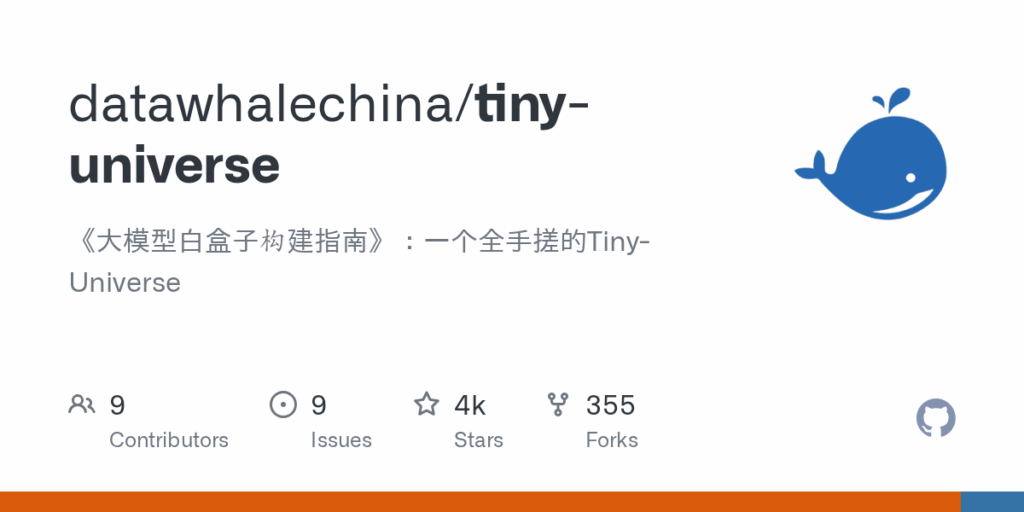tiny universe
Basic Information
This repository is a white-box, from-principles guide and codebase for learners who want to build and understand large model systems by hand. It provides step-by-step, minimally abstracted implementations that span the full LLM stack, including model internals, pretraining, retrieval-augmented generation (RAG), agent systems, evaluation frameworks and diffusion models. The content is targeted at readers with a traditional deep learning background who want to reproduce key components at the PyTorch and Numpy level rather than relying on high-level packaged APIs. The project collects smaller subprojects such as TinyDiffusion, TinyLlama3, TinyLLM, TinyRAG, TinyAgent, TinyEval, TinyTransformer and TinyGraphRAG to illustrate core ideas, formula-to-code mappings and runnable examples so learners can independently build a compact, comprehensible Tiny LLM Universe.








